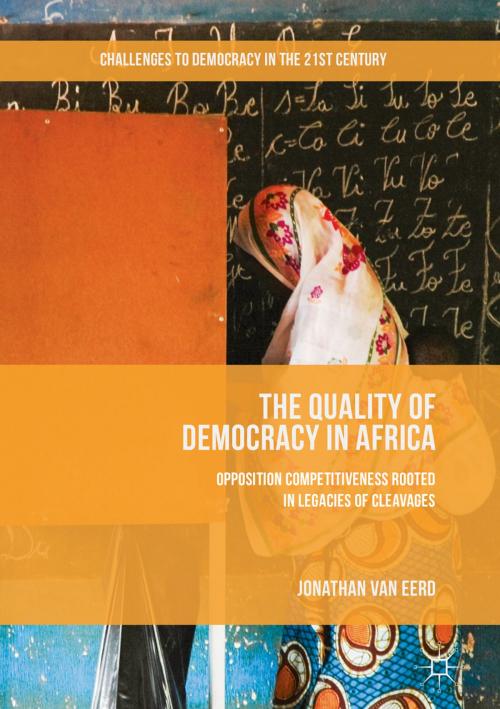The Quality of Democracy in Africa
Opposition Competitiveness Rooted in Legacies of Cleavages
Nonfiction, Social & Cultural Studies, Political Science, Government, Democracy, International| Author: | Jonathan van Eerd | ISBN: | 9783319508382 |
| Publisher: | Springer International Publishing | Publication: | April 7, 2017 |
| Imprint: | Palgrave Macmillan | Language: | English |
| Author: | Jonathan van Eerd |
| ISBN: | 9783319508382 |
| Publisher: | Springer International Publishing |
| Publication: | April 7, 2017 |
| Imprint: | Palgrave Macmillan |
| Language: | English |
This book shows that democratization in sub-Saharan Africa can be successful, even if the government remains dominated by one major political party. If an institutionalized and strong opposition party – even when too weak to take power – challenges the dominant government party, the quality of democracy improves substantially. The comparative study demonstrates that competitive opposition parties in dominant party systems are rooted in the historical legacy of political cleavages related to de-colonization that precede the third wave of democratization of the 1990s and have survived the instability of post-independence political developments to the present day. The study covers 19 African countries and 55 elections overall, including four in-depth case studies of Botswana, Lesotho, Ghana and Mali. It offers scholars and practitioners of electoral democracies and competitive authoritarian regimes a novel view on the role of party systems in processes of democratization. It makes an important contribution to the general literature on state building intertwined with democratization and representation in old and new democracies.
This book shows that democratization in sub-Saharan Africa can be successful, even if the government remains dominated by one major political party. If an institutionalized and strong opposition party – even when too weak to take power – challenges the dominant government party, the quality of democracy improves substantially. The comparative study demonstrates that competitive opposition parties in dominant party systems are rooted in the historical legacy of political cleavages related to de-colonization that precede the third wave of democratization of the 1990s and have survived the instability of post-independence political developments to the present day. The study covers 19 African countries and 55 elections overall, including four in-depth case studies of Botswana, Lesotho, Ghana and Mali. It offers scholars and practitioners of electoral democracies and competitive authoritarian regimes a novel view on the role of party systems in processes of democratization. It makes an important contribution to the general literature on state building intertwined with democratization and representation in old and new democracies.















